The Land of Israel Caucus is mounting a campaign to convince the gov’t to uphold High Court’s decision to demolish the illegally-built Palestinian village; Palestinians claim they’ve lived on the land for hundreds of years: ‘We have Turkish papers from the Ottoman times to prove we own the land.’
The Land of Israel Caucus has recently launched a PR campaign aimed at convincing Prime Minister Benjamin Netanyahu and Defense Minister Avigdor Lieberman to demolish illegally-built Palestinian homes in the village of Susya.
Susya, located in the southern Hebron hills, is in Area C, which constitutes approximately 60 percent of the West Bank and is under full Israeli control.
There are some 350 Palestinians living in Susya in tents and shacks funded by international bodies like the European Union without any electricity or running water. All of the structures in Susya were built illegally, and all have Israeli demolition orders outstanding against them.
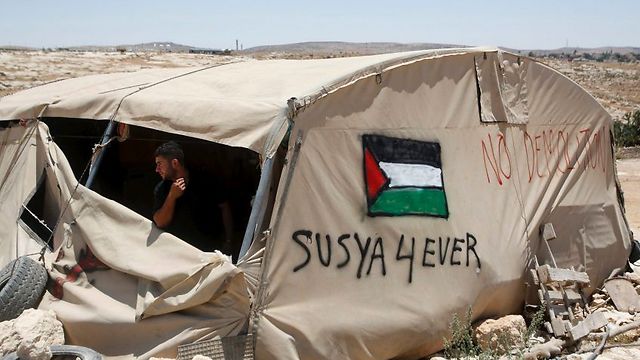
Palestinians say the Israeli government makes it impossible for them to get permits; members of the Land of Israel Caucus say Palestinians are flouting Israeli law and trying to take over more land. They say the Palestinians actually live in the nearby village of Yatta, not in Susya.
In 2015, the High Court of Justice (HCJ) ordered that almost half of the homes be demolished. That decision has been postponed several times, and the HCJ has now given the Israeli government two months to decide how to proceed with Susya. The government is stalling, seemingly, because of international pressure.
Recently, the caucus organized a tour of Susya, bringing two busloads of Likud activists from Tel Aviv and Ramat Gan to the village and to other Israeli communities in the West Bank—such Gush Etzion and Hebron—in an effort to garner more support for their cause.
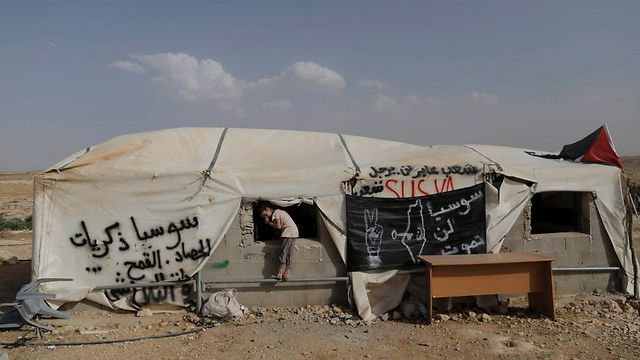
“A big part of this tour is to put pressure on the prime minister not to go along with the illegitimate pressure from the international community and to uphold the law in accordance with the HCJ,” said MK Bezalel Smotrich (Bayit Yehudi), co-chair of the caucus and founder of Regavim, a right-wing NGO dedicated to ensuring “responsible, legal, accountable, and environmentally-friendly use of Israel’s national lands.”
According to Arik Ben Shimon, the spokesman for the Land of Israel Caucus, the organization has arranged tours like these in the past to places like the Galilee and the Negev, often inviting both journalists and members of various Likud chapters.
The day began as journalists, along with the director of the Zionist Organization of America, entered into a bullet-proof van at the symbolic Menorah at the Knesset. As the van drove into the West Bank, the group read a traveler’s prayer to ensure safety on their visit. Most carried guns.
While on the tour of Susya, visitors encountered a protest in the village, in which residents and other activists waved Palestinian flags and chanted, while their Israeli counterparts rushed to the scene with Israeli flags and songs of their own.
There are actually three Susyas: the archaeological site, the Jewish settlement founded in 1983, and the Palestinian village. Palestinians have claimed the land of Susya for hundreds of years, saying they have lived in cave communities there.
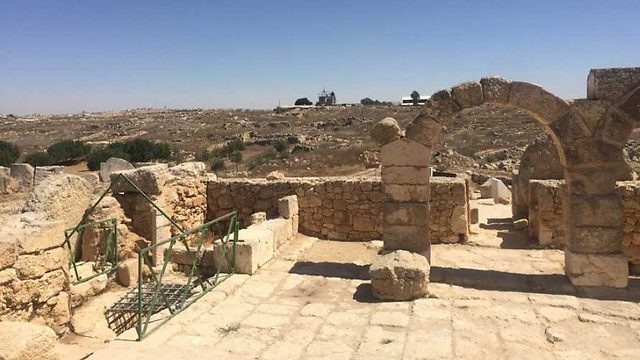
According to Sarit Michaeli, a spokesperson for hardline left-wing Israeli organization B’Tselem, the IDF demolished the Palestinian village of Khirbet Susya in 1986 to build an Israeli archaeological site.
The Palestinian residents of Susya were forced to move about 500 meters from their original village to an unoccupied area.
Abed Nawjaa, a 29 year-old Palestinian man who was born in old Susya, says that his family has lived on this land for at least 600 years.
“This is our land,” Nawjaa told The Media Line. “We have Turkish papers from the Ottoman times and we have everything to prove we own the land.”
Susya has become something of a symbol to both the national-religious MKs and to the Palestinians. To the MKs, Susya is an example of the EU and other international bodies interfering with Israel and funding what they call “illegal encampments.”
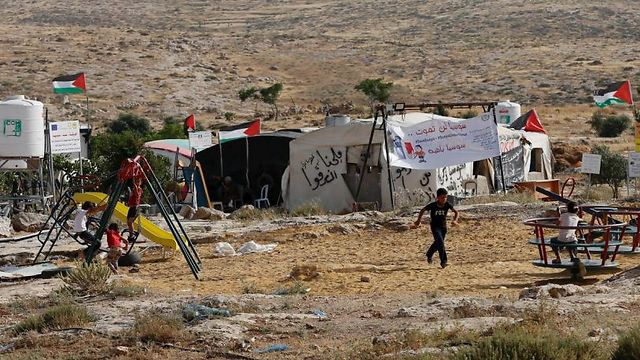
“We have all the rights from the Bible, from God, and from history, to have this land,” Likud activist and tour participant Sara Rivai told The Media Line. “I hope the illegal Arab homes will be destroyed. We need to be strong in the face of this crime they are committing.”
To the Palestinians, Susya is a symbol of the overall struggle against Israeli control and the mistreatment by Israeli authorities—like the Civil Administration—of Palestinians.
“It’s not up to the Knesset to decide what will be the fate of Palestine, it’s up to the Palestinian people who have rights that they are granted under international law,” Xavier Abu Eid, a spokesman for the Palestinian Liberation Organization (PLO), told The Media Line.
According to Michaeli of B’Tselem, many on both sides see Susya as a test case.
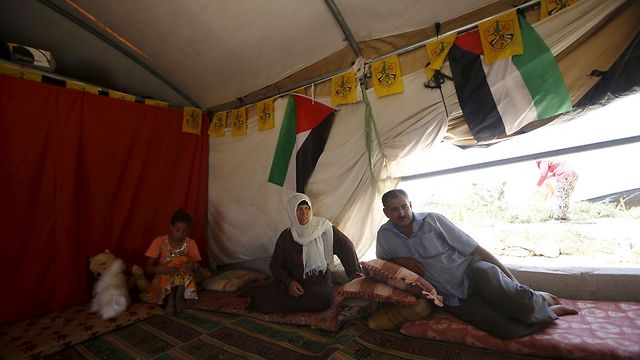
“People fear the domino effect—if Israel demolishes Susya, a village that has garnered fame, then where does the fate of other Palestinian villages in the occupied territories rest?” Michaeli said.
“The problem, of course, is that Israeli authorities don’t want to see Palestinian communities in between the settlement and the archaeological site, and therefore have worked tirelessly to try and get the residents to leave the community. Palestinians have a legal right to this land,” Michaeli added.
It is also being seen as a test for Israel’s new defense minister, Avigdor Lieberman.
The visitors to the archaeological site say they simply want the government to enforce the court decision.
According to Likud MK Yoav Kish, co-chair of the Land of Israel Caucus and one of the trip’s organizers, there are roughly 1,000 Israeli families in Susya and there are about 30 or 40 Palestinian families there. Many of those families are from Yatta, a Palestinian city nearby Susya. Kish said these families have homes in Yatta but they are just trying to make a point by “squatting” in Susya.
“Legally, there is already a HCJ decision that says (these structures) are illegal and must be removed. So, it is very simple from the legal point of view,” said Kish. “The problem is that the government is not implementing the legal decisions.”
As reported by Ynetnews
